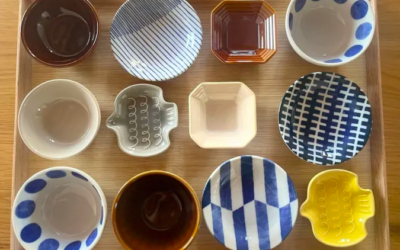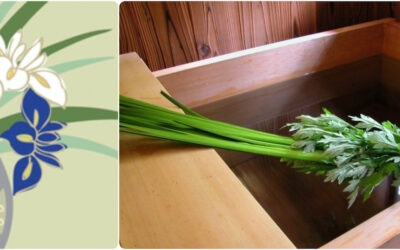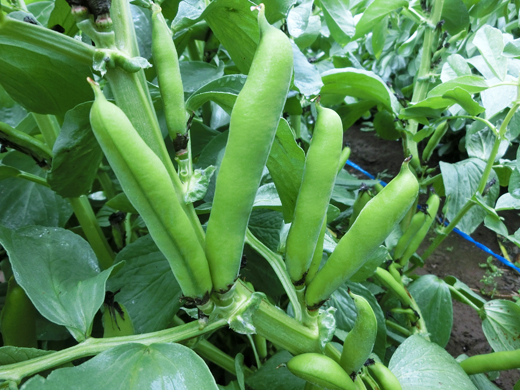
Fava Beans: Sora Mamé そら豆
(Fava beans have been part of the eastern Mediterranean diet (Egypt, Greece, Italy) for at least 4000 years. There are stories of monks from India traveling through China who brought fava beans to Japan in the Nara Period (710-794 AD). However, the first written evidence of sora mamé being consumed in Japan is in a dictionary-like document, Tashikihen (多識篇) published in 1631.
Today, favas (what the Japanese call sora mamé) are welcomed to Japanese tables as spring begins to shift towards summer.
The Japanese write SORA MAMÉ in several ways:
空 the calligraphy for SKY + 豆 calligraphy for BEAN
天 the calligraphy for HEAVEN + 豆 calligraphy for BEAN
Both of these evoke the image of stalks in the field with pods pointing to the heavens.
Sora mamé can also be written as: 蚕 COCOON (kaiko) + 豆 BEAN. This relates to the appearance of the pods themselves, which look vaguely like silkworm cocoons.
By the way, HIBARI is a Skylark and dishes made with fava beans often include hibari in their name.
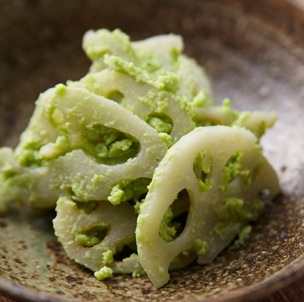
Hibari Aé
Lotus root with fava bean sauce
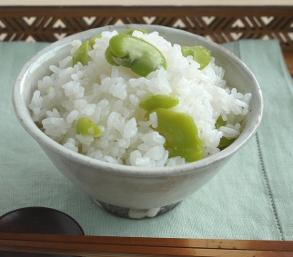
Mamé Gohan
Fava beans in rice

